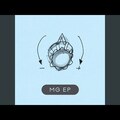MARTIN GORE
Music Tech has a rare interview with the driving force behind Depeche Mode on the creative spark that led to his latest creation, and the recording process behind it…
The history of electronic pop icons Depeche Mode might have been very different had Vince Clarke not announced he was leaving the band in 1981. Even though the band were becoming increasingly successful, Clarke appeared to be more about songs than the pop that came with them. Although Alan Wilder replaced Clarke as keyboard player, it was Martin Gore who took over songwriting duties, propelling the band towards the darker, more creative territory that paved the way towards their 100 million-selling album success.
Having grown up alongside his Basildon bandmates, Gore now lives in Santa Barbara,California. The studio is his second home, where he works five days a week collating ideas for future DM projects, not to mention recent collaborations with Nitzer Ebb and MOTOR. In 2003, Gore released his debut solo album Counterfeit2, and more recently he teamed up with Vince Clarke to record the techno EP Ssss under the pseudonym VCMG.
For his latest solo release, Gore refashioned leftover tracks from Depeche Mode’s 2013 album Delta Machine and expanded the material into a 16-track universe of filmic instrumental electronica. To add a sense of continuity, he then detached the last two letters of his VCMG collaboration and named the album MG.
In the 80s, electronic bands would often release an album every year, sometimes two, but these days such torrents of activity are far more infrequent. The last six Depeche Mode albums have stuck studiously to a four-year timeframe, enabling Gore plenty of time to potter around his studio conjuring up ideas for collaborations and solo projects.
Dark, filmic and instrumental, Gore’s second solo release takes a very different turn to his covers album Counterfeit2, released over a decade ago. Writing began soon after the release of DM’s Delta Machine, but with Gore being such a talented vocalist, why record a purely instrumental album?
“Well, as you say, the idea only really came to me after we finished the Delta Machine project. I had a bunch of instrumental songs left over that we didn’t use because we just had so many songs. Now that Dave writes these days, we just had a whole slew of songs to record for both the album and the Deluxe Edition. So I had these tracks left over and didn’t want them to go to waste, and then I thought, well maybe it’s a good idea if I carry on that theme and write a full instrumental album; something different for me and something different for the fans as well. I think it’s always good to push yourself and do different things.”
Having recorded a techno album with Vince Clarke in 2012, which was also instrumental, did that project spark any ideas in terms of the writing process?
“That was something very different; although it was an instrumental album, it was also a pure techno album. With this, I really wanted to do something completely new and make it far more cinematic, atmospheric and filmic – although, because it was instrumental, I quite liked the idea of carrying on the MG moniker.”
The album is a special treat for long-term fans of Depeche Mode’s work, harking back to the days when Gore provided dark, melancholy themes for classic albums such as Black Celebration; ideas that contributed heavily to its ethereal atmosphere. Perhaps Gore was thinking along the same lines during the recording of MG, creating a conceptual vision that would link the tracks together or give them a particular vibe?
“I didn’t sit down and have an overall concept in mind, but when I started listening back to the first couple of tracks they felt like they had a kind of filmic and science fiction feel to them, and I quite liked that, so I think I had that in the back of my mind while I was writing the rest of the album.”
Far away from the rain and damp of his hometown Dagenham, Gore’s sunny Californian surroundings do not appear to have influenced the type of music he makes:
“Yeah, I think I should be living somewhere else really (laughs), it’s not very good for my image living here. But somehow, wherever I live, it doesn’t seem to come through in the music. Music comes from your soul. This is all superficial around me, and so it doesn’t seem to affect the output of my writing.”
From listening to MG’s expansive sci-fi themes, one could make comparisons with the soundtrack to the futuristic thriller Bladerunner, composed by Vangelis in 1982. The songs have a similar spacious, grandiose quality, seething with mechanical – yet very human – atmospheres. Would I be right in assuming Vangelis was an inspiration, if only subconsciously?
“Funnily enough, I watched Bladerunner not that long ago, because my son’s at an age now where, y’know, we’re trying to find these sci-fi classics, and that has always been one of my favourite films. So I did watch it within the last six months and it was certainly as good, if not better, than I remembered it. And the soundtrack’s amazing, so subconsciously there’s probably some kind of influence there.”
Indeed, MG would have been a very different beast had vocals supplemented the music. When Gore writes for Depeche Mode, room has to be allowed for Dave Gahan’s vocal and lyrical themes, with MG, the music had to be more expansive to compensate. How did that change Gore’s approach to the writing and recording process?
“It does change things because all of a sudden the music has to open up more space to do things instrumentally. Obviously, when you’re working on a song you know that the end result, and usually the most important thing, is the vocals and the lyrics – and there’s always got to be a space for that. Whereas with instrumental music you don’t have to worry about that at all. Instead you’re thinking about ways of keeping the listener interested over the course or length of the song that doesn’t involve any kind of word play or vocal melody.”
How long did the album take to complete, and did the music derive from a collection of demos or were tracks completed individually?
“I had the four or five tracks that I’d finished during the Delta Machine period, then as soon as I got back from the tour in March I went straight into the studio. The whole recording process was finished by the end of November. I think, for all of the tracks, I worked on them one at a time until I’d got them to the point where I liked them and finished them, or didn’t so I didn’t finish them. There were a few tracks where I got to the end having spent a week or two on them and thought, no, it’s not going anywhere. So as long as I liked a track, I would finish it up to a point where it was ready to be mixed.”
MG is a 16-track album, denoting that, despite Gore’s lengthy career as a composer, he is far from short on ideas. Does finding that artistic spark come just as easily these days, or did this type of album only indulge his creative impetus further?
“I think, because this was always going to be something new, it was fairly easy to get new ideas. My studio is a great place with so many great instruments, which gives me that space in which to get inspired. At the moment it’s like a modular city, with all kinds of things I can use and get enthused by. I did find it very easy; in fact there are a couple of extra tracks that I don’t know where we’re going to put. They’re probably going to be given away. I could have gone on writing this sort of music forever.”
So, what about Gore’s studio? The lasting impression you get from listening to MG is its deep analogue sound field. The music has a depth, warmth and richness to it that separates it from the majority of today’s digital productions. Gore mentioned modular synthesis, so was the album mostly comprised from analogue gear?
“Yes, the majority of the album was. Most of the sounds on there were made with modular stuff. I’ve got a dotcom modular system, but the majority of it is Eurorack, and then obviously there is some polyphonic stuff used on there too. I also used instruments like the Memory Moog, an Elka Synthex and also the Gleeman Pentaphonic. They’re quite exotic; the Gleeman is fairly rare. I’m not sure the year it was produced but it’s got some very unique, mechanical presets – you actually turn a switch to change them, so it’s very hands-on.”
Use of modular technology is becoming increasingly common. Recording in-the-box using digital software packages can breed an air of familiarity, while artists occasionally yearn for an alternative to the click of a mouse wheel. Modular systems used to be notoriously expensive – however, the latest Eurorack modules are relatively cheap to put together, hence their popularity has grown markedly.
“It’s the biggest growing area of modern modular, and there are so many manufacturers now that modulars are virtually coming out on a daily basis. In terms of using them, I just think that you look at your system and think about where you’re going to start, whether it’s a bass sound or an oscillator – then patch it tosomewhere else, and from there to another patch bay. It’s just unique every time, and there’s no saving of the patches, it’s all in the moment!”
Was the hands-on aspect a big attraction, and the fact that you’re able to be instantly creative, which no-doubt adds a sense of spontaneity?
“I think so. And there are so many interesting modules coming out now, so that alone is inspiring. When you’re working on a keyboard – even if you’re creating your own sounds – I think that there’s a tendency to switch through the presets and work on something that’s in a kind of vague area of where you want to be. Whereas when you’re starting off with a patch, there is no vague area, you’re creating it from scratch, and that opens up so manymore new possibilities.”
Despite Gore’s current analogue bent, digital technology still played an important role in the recording process. Software was used to piece together the sounds and sequences that flowed from Gore’s analogue setup, and Logic is his choice of production DAW, but has it always been that way?
”Yeah, I write everything in Logic. I’ve used it for years and years, because it’s comfort. When you’ve been using something for so long it’s hard to move onto something else. For example, I know that people love Ableton – and I know that I would love Ableton, but it’s just the learning curve.” Was Logic merely used as a sequencer or did virtual synths and plug-ins also contribute to the album’s sound design? “Not so many virtual synths, this album in particular was pretty much hardware-based. I quite like using digital effects and digital reverbs, so I used a mixture of hardware and software to record the album. You can find cool, creative digital effects in the box these days; they can be creative as well.”
Long-term collaborator Q (Timothy Wiles) mixed the album; what did he bring to the process?
“I thought that Q did an amazing job with the VCMG project, so I was very keen to get him involved in mixing this. He’s just able to get this amazingly detailed sound that is very wide and deep, and he seems to be able to bring everything out in a way that is very clear, with an intensity and loudness.”
Many commercial electronic artists have found a new home in film: Trent Reznor, BT and Junkie XL spring to mind, I therefore wondered if soundtrack was an area that Gore would like to move into? “If the right film came along at the right time, I think I’d be interested. That’s always the problem, because when you’re in a band you have a cycle, and our usual cycle these days is every four years. That includes a writing period, a recording period, a touring period, and then a bit of a break. So someone would have to come along just when we’re about to take a break, with the right film. It’s never happened, but I can’t say I would ever rule it out.”
Perversely, artists rarely have time to listen to other music, and when they do they often find it difficult to listen without picking apart the production. Is Gore inspired by other electronic artists?
“I like Andy Stott a lot. A couple of days ago I got a remix in that he did for me of the Depeche Mode track Europa Hymn that was really amazing; he’s very creative. But electronic music is such a broad term these days. If you listen to the charts, so much of the music is made electronically, but then there’s underground experimental electronic too – so it’s all over the place. I feel like [technology] is a bit of a double-edged sword. I love the fact that electronic music has carried on the punk ethos, because it felt like that was what we were doing when we first started out. We would turn up to gigs with £200 synthesizers in suitcases and just plug in and play. It was all about your songs and your ideas, and that’s kind of carried on now, because people can just make music in their bedrooms. The problem with that though is there’s not much quality control, which is also why there’s so much bad music about.”
It’s been two years since the last Depeche Mode album, Delta Machine, which just fell short of the No. 1 spot in the UK. Despite Gore displaying a new-found love for instrumental music, attention naturally turns to when he might focus on writing a 14th studio album with the band.
“It’s not in the works at the moment, but it is something that we’re thinking about, so that will be the next thing I get into. I’m not doing tons of promotion for this album because it’s not that kind of a record really. Being an instrumental album, it’s not going to get radio play and that sort of stuff, but obviously I want to do some press to make sure people are a little bit aware of it, and then I’ll get back to writing some songs for the band.” Is there anything you’ve learned from making MG that you’d be able to bring to the next DM record? “The only thing I would say is that when you’re hands-on working with modular synths all the time, you get to know certain modules more than others. Everything has its own sub-menus and you just get to know your gear a bit more.”
As Depeche Mode lays dormant, in the middle of its fourth decade, how does Gore reflect on where the group is positioned at the moment?
“In terms of the band, it’s amazing that we’ve been together for 35 years. That is pretty stunning; maybe even a bit of a miracle if you look back at certain periods in our history. I think that is testament to the fact that we all get on well considering the amount of time we’ve spent together, and we all have a certain amount of respect for each other, obviously.”
Making of MG: Gear List
● Eurorack Modular System
● Dotcom Modular system
● Elka Synthex
● Moog Voyager
● Gleeman Pentaphonic
● Elektron AnalogFour & Rytm
● Arp 2600
● Arp Solina
● Aries Modular
● Digisound Modular
● Synton Fenix
● Swarmatron
● Voyetra 8
● Arturia Minibrute"





